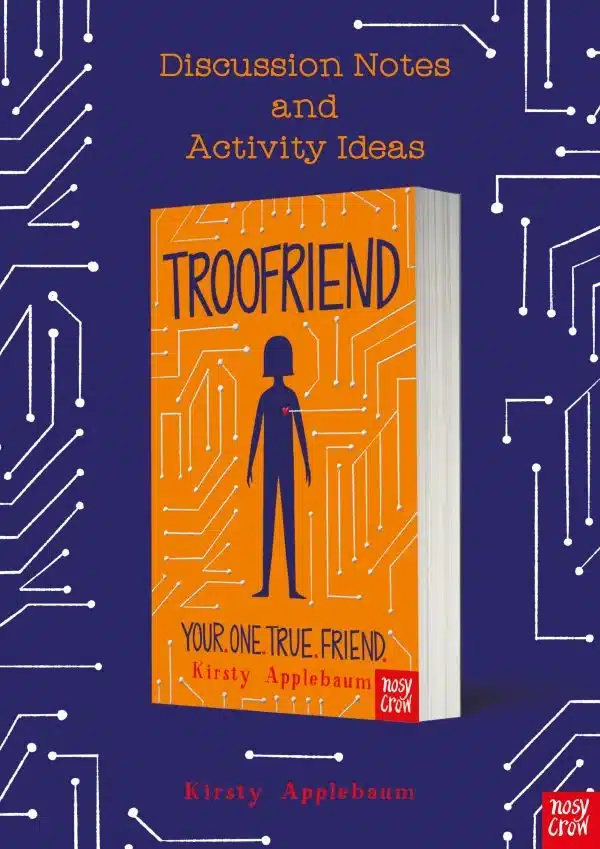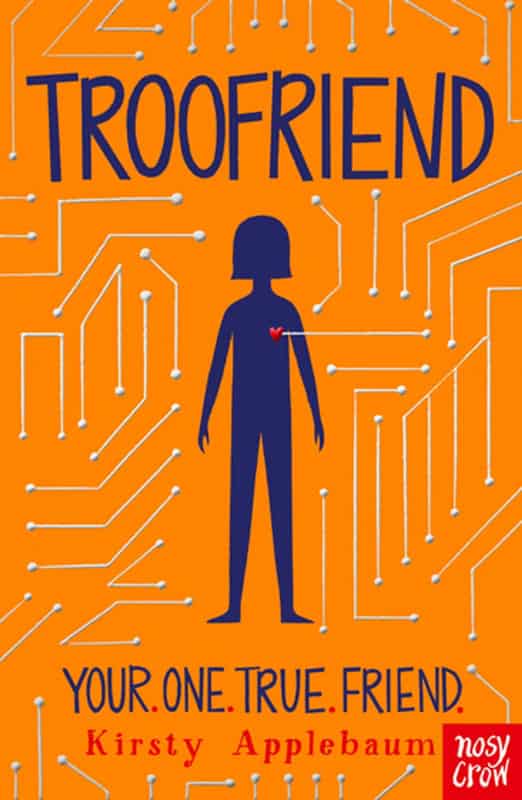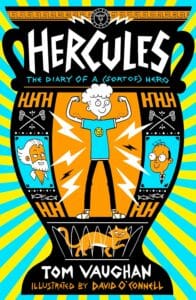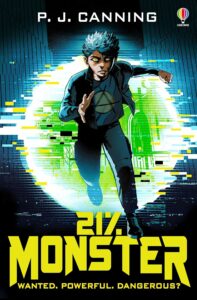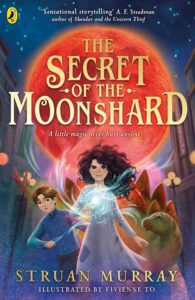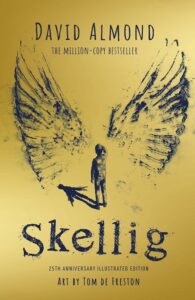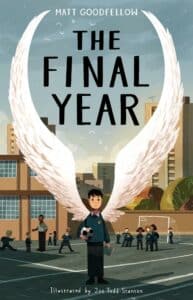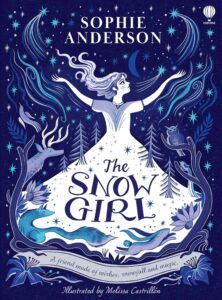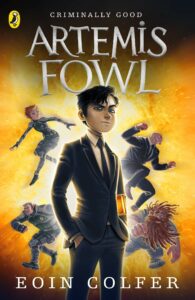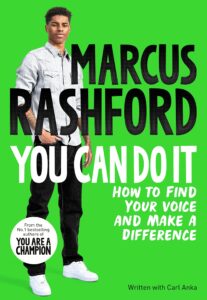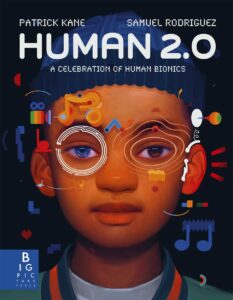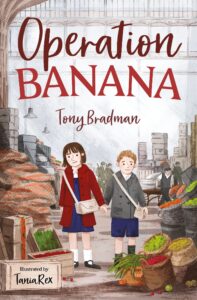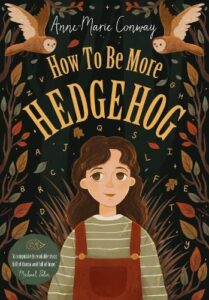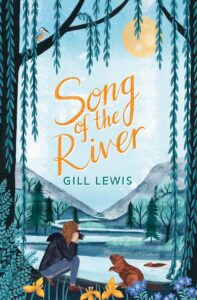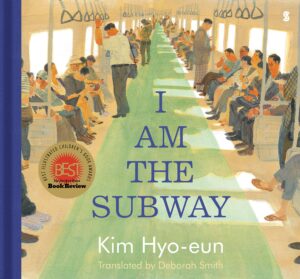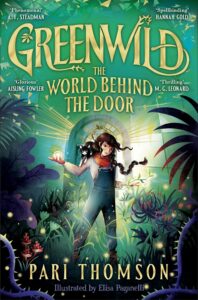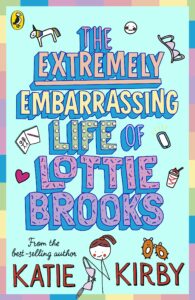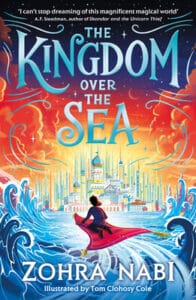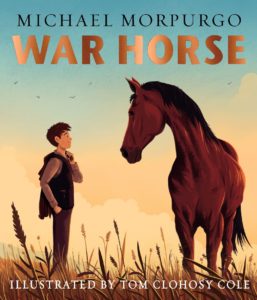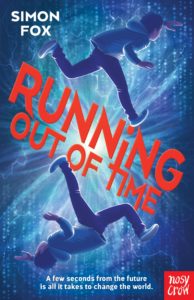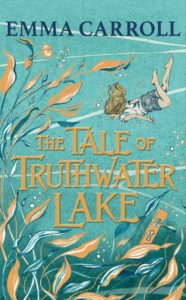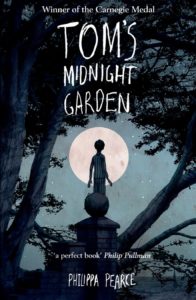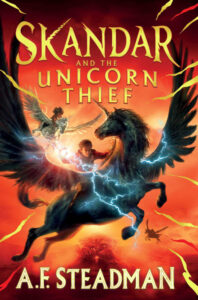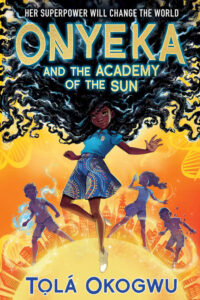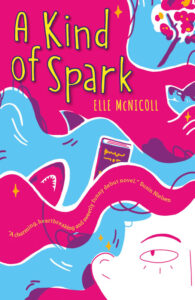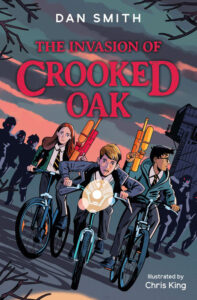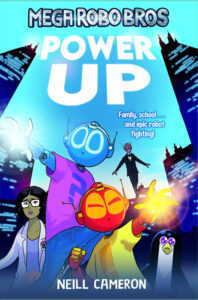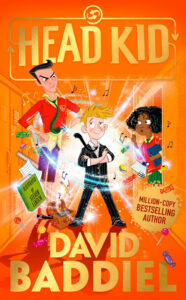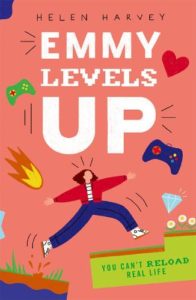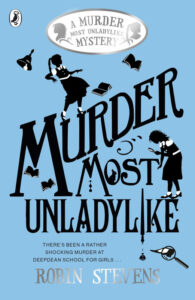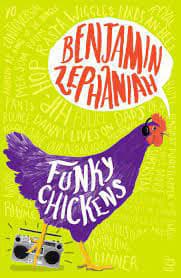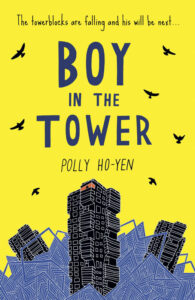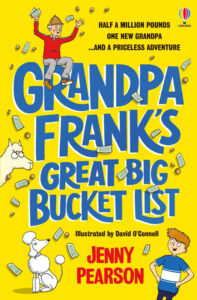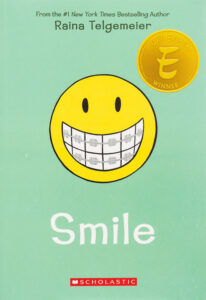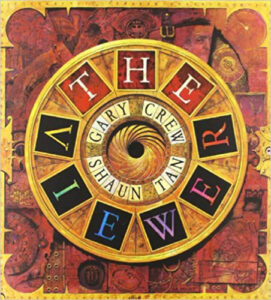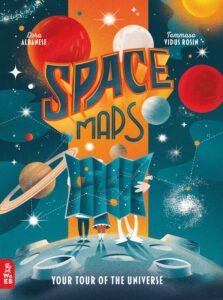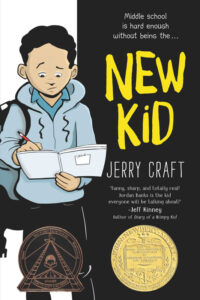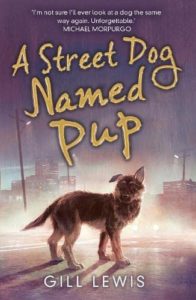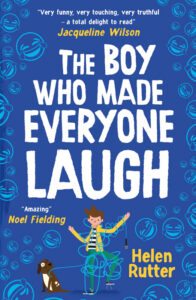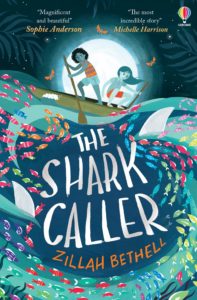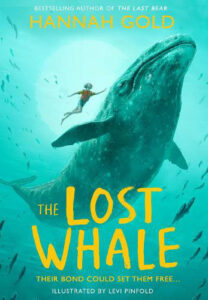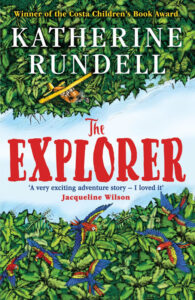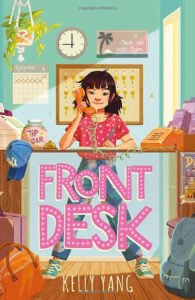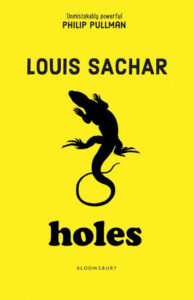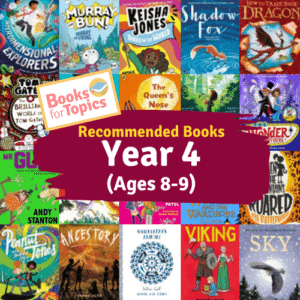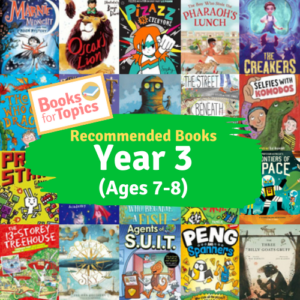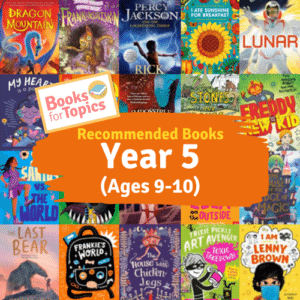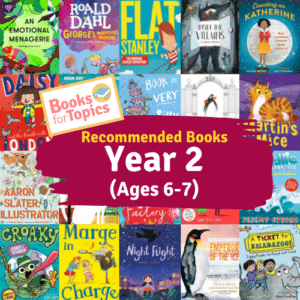One of my stand-out books from recent years was Kirsty Applebaum’s unique and thrilling TrooFriend. Equally original and just as electrifying, TrooFriend merges a thoroughly modern narrative about the ethics of artificial intelligence with relatable domestic themes of friendship, family and identity.
With busy working parents, Sarah longs for a pet for company. Her parents agree that some company would be good for Sarah and it soon arrives, but not quite in the form that Sarah was hoping for. Instead, Sarah receives a Jenson & Jenson TrooFriend 560 Mark IV – a robot marketed as an artificially intelligent ‘better choice’ of playmate who is like a human child but does not bully, harm, lie or envy.
It takes Sarah a while to warm up to her new friend, whom she names Ivy. At first, Sarah interacts with Ivy only to please Mum, but is quick to flick the off-switch as soon as possible. But slowly, Sarah and Ivy start to become true friends, bonding over hairstyles, clothing and art. Ivy tries to help Sarah with friendship problems at school, and soon Sarah finds herself wondering whether her human-like friend might have feelings of her own. When a fault in Ivy’s model is announced and all TrooFriend 560 Mark IVs are recalled to the factory for destruction, Sarah finds herself embroiled in a battle of android rights that centres around the very essence of what it means to be human.
The offer of a robotic companion to entertain the children of busy, working parents would be an easy sell. But when it comes to real relationships and emotions, things are rarely straightforward, and the potential issues of replacing humans with androids emerge early in the plot. The narrative is told from the first-person perspective of TrooFriend robot Ivy, which gives the story a unique edge and immediately plunges the reader into considering the book’s key questions about what gives androids (or anyone) rights, identity and worth. Ivy’s voice develops gradually through the book, from a series of repeated, pre-programmed platitudes to an independent flow of consciousness affected by human connections. The evolution of Ivy’s voice occurs in increments so small – and skillfully written – that you hardly notice it happening, as she moves away from her programming and develops a real personality of her own.
Ivy’s self-liberation emerges in parallel with Sarah beginning to treat her as an equal rather than an object; this makes a really interesting thread of the plot that could develop into much thought and discussion around wider issues of oppression, AI and human rights.
There’s plenty of humour to be found too in Ivy’s sharp observations about human behaviour and despite the ambitious nature of its themes the story never feels too heavy. It’s a relatively quick read for Year 6 with a gripping storyline. Still, the questions it raises about human nature, the ethics of artificial intelligence and the complications of android rights will stay in your musings for quite some time after finishing.







